Before death came, the liars were made to feast upon the hands of the thieves, and the thieves were made to ingest the tongues of their liar brothers, and we praised the Master Builder for his judgements.
Don't wanna be here? Send us removal request.
Text
It’s More Than Just Words: An Analysis of Changes to Anissa and Conquest’s Characters and Roles
(This essay is just under 3.5k words. I hope you have as much fun reading it as I had writing it!)

Invincible has now adapted Anissa and Conquest’s introductory storylines, spending far more time on them than their comic counterparts. Each of these plots were defined by noticeable deviations from the comics, incorporating novel scenes and interactions, and changing their ideology and thematic roles in the greater Empire. The show has made the conscious choice to avoid the comic’s gratuitous acts of trauma that pulled Mark away from the superhero plot, instead conveying its themes through the conflicts themselves and the identities of those involved. I believe that the changes made to Mark, Anissa, and Conquest are significant within these subtextual languages, and that their identities and interactions can parse what the story is suggesting about these two; I believe, specifically, that these changes tell us that Invincible has already referenced its most controversial plotline while indicating that these two Viltrumite characters have very different relationships to it.
(I won’t spend much time describing the comics. I don’t need people to have engaged with two different stories to understand the points that the show alone makes. Part of this is to avoid the awkwardness of the entire analysis being a back-and-forth with another medium, and part is to respect the wishes of the creators, who discuss the two works as if they are different. Discussions of Anissa, particularly, are colored by the assumption that the show will converge with the comics just for her, when it has already diverged for her and for characters who existed in similar contexts such as Amber and Allen. I emphasize moments unique to the show, particularly as the story relates to race, an innovation of the series.)
This version of Anissa is not white: this is not an accident. Anissa’s skin is noticeably always darker than Mark’s (even as inconsistently as she is illustrated in the scenes where they interact, though it is clearer thereafter). This already challenges and reduces any of the representational merit that the assault if portrayed unchanged could have had: though there is a long history of superhero media framing brown women as abusers (see: DC Comics), this change should at least inform the discussion around her. All of the characters who are no longer white have had revised stories that are influenced by the racialized subtext of the stories. She is the only Viltrumite to be changed this much, and stands out from all the others: even her eyebrows and hair set her apart from the Viltrumite women we’ve seen in flashback and in the main narrative. (The character designers are quick to reuse features, too: she does not have so many distinct ones on accident.) Even if you dismiss her features, her skin color could not be a tan, either, as no other significant character shares it, and she is noticeably darker than any of the white Viltrumites in the same or similar lighting conditions. This change already places her in the same context as all of the other characters whose races have changed. Just as Mark’s conflict with the other Viltrumites, Debbie’s relationship with Nolan, Amber’s relationship to her community and to the dangers of heroism, Paul’s comforting familiarity to Debbie, Rex’s relationship with the government, are all painted in this light, we see a young brown woman in service to an empire whose agents are mostly white men.
This racialization influences the distinct tone of Anissa’s interactions with Mark. The two of them logically spar, engaging with each other on intellectual grounds, Mark not meeting her with the same vociferous refusal with which he has met other Viltrumites. Notably, unlike other Viltrumites, who have attributed Earth’s flaws to all people on Earth, she attributes it to a specific group of people: Mark is more receptive to this, even hesitating to rebuke her points outright. Her ideas are no less authoritarian than the others, but Mark’s difficulty disagreeing comes shortly before a season whose conflicts are rooted in interactions with authority, and his wrestling with his place in these systems. She does not consciously attempt to appeal to this visual similarity, instead reminding Mark that she is the logical one and speaking to him in a stiffer tone and idiolect than the other Viltrumites; rather, it is the context behind and beyond Anissa’s words that makes him more receptive to her ideas. It is easier for the Mark to accept the Viltrumite woman of color’s ideology than any other before or since.

Contrast this with Nolan, who appeals to Mark by separating him from Earth, hoping to place him above and outside of Earth and the racial context that still defines his life there. He tries to remove Mark from his race, offering him an ‘alienness’ rooted in Mark’s Viltrumite ancestry. The language makes Mark uncomfortable—the discomfort is familiar, especially when the words are directed at Debbie. Despite Nolan’s insistence that they are each beyond Earth, Mark sees a white man saying things we have heard before; that is, his objection is a result of the racialized context wherein Earth has placed each of them, just as Nolan’s insistence that Mark not help Titan and Debbie’s affront to this were each framed by Titan’s race and the racial context of his conflict. Nolan relents only when Mark appeals to his fatherhood, reminding Nolan of the undeniable connection between them, while Nolan’s abuse in that sequence is predicated on insisting that the connection was not strong enough. Nolan sees him as too much like other people on Earth, until he could not ignore their familial connection.
Kregg’s interaction with Mark is briefer, but demonstrates the absoluteness with which he adheres to Viltrum’s principles. He does not give Mark an option to align himself with anything other than Viltrum: Mark cannot get out a word without being struck. The scene’s framing, too, evokes Mark’s conflict with Nolan, another Viltrumite man kneeling over him and talking down to him as he lays bleeding. Their focal distance reinforces the impersonal weight behind Kregg’s threat and Mark’s inability to reach him with words, a key characteristic of his that defies the Viltrumite prinicple that might always makes right. He is forced to listen, until Kregg chooses to leave. Kregg replaces Nolan’s barbed offer to assimilate with a demand that he do so: Viltrum punishes the pretense of familiarity with a naked threat. He is yet another white man demanding that an imperial subject join or die, without even consideration to Mark’s context.

Anissa comes and similarly appeals to his Viltrumite identity, but her evocation of it is surrounded by her acknowledging Mark’s desire to protect people. (Compare this to Conquest’s refusal to acknowledge Mark’s connection to Earth until he sobs over a dying Eve, noticeably removed from the civilians and population centers in which they had been fighting until that point.) This time, he challenges individual points, and not the Empire outright: there is an attempt to convince her, based in Mark’s preference for words over violence, but the length and framing of their conversations suggests a proximity in their base ideologies: they each provoke slight emotional reactions in each other, as seen in Anissa’s “No it isn’t,” and Mark’s, “We needed to make choices for ourselves.” This time, he does not outright reject it until she mentions his father: the tone changes as he is taken out of the color-blindness implicit in their interactions and back into the assimilation that Nolan offered. It is when she deliberately represents all the other Viltrumites he has seen, and the coded hurt that they have brought with him, that he refuses to negotiate. Where he begs Nolan to change, and curses at Kregg, he asks her to leave. There is, at that moment, a revelation that Mark thinks—or had thought—of this conversation as happening between peers.
The end of their fight gives more proof to the similarities between them. Cecil asks Mark to yield to her; he refuses, and she presses her foot onto his neck until he is unconscious. This posture puts her the farthest from Mark of the three other Viltrumites that have confronted him while he lays injured. As any posture involving her hands would have evoked the comics, the distance here does the opposite. “Killing you is not my task” is more circuitous than her wording has been until that point: she does not say, “I was told not to kill you,” but implies, “I was not told to kill you.” Invincible has created a tonal language that emphasizes the moment a character hesitates in their singular-minded task. Nolan looking at his bloodied hands and later turning away from the pull of the black hole, Angstrom pulling off the helmet, even Rick fighting his brainwashing, are all in dialogue with this scene. The only Viltrumite who has outright avoided civilian collateral, pulling him away from the fight and even throwing him into the water, focus given on the civilians unharmed by her attacks, which approach them without ever reaching them, chooses again not to kill.

The framing reinforces this, too. Viltrumites’ bodily subjugation of Mark (including the infamous scene) put the aggressor on the left and Mark on the right. At times, they are closer to centered, but ninety-degree shots always ultimately fall into this paradigm. The series inverts this for Anissa alone, placing her at the right, and Mark at the left. Cecil worries for Mark’s life; Mark does not. He is not the one who is losing control: “Either you need me, or you don’t” challenges Anissa’s place in the hierarchy. Viltrumite ideology has conditioned her to expect to have the final say here. Mark’s words invert this as much as the camera: of the two of them, he is the one with the choice here, to defy Cecil’s orders and Anissa’s violence, while she will remain subordinate to her masters regardless.
It is the complete loss of his autonomy that pushes her from this task. (Her comic counterpart is defined inversely by seeking this theft.) It surprises the GDA, but not Mark. Cecil’s conversation with Mark clarifies this. “All over a few words,” met with Mark’s “It’s more than just words” takes the focus away from what Mark said, i.e. the typical argument that Anissa relented purely because of the logical need to keep him alive. “It’s more than just words” puts the focus on what went unsaid. Anissa's actions asked Mark if he was willing to face the consequences that would come from refusing to betray himself. Yes, he said: he was ready to die, and would never surrender Earth. On a smaller scale, her choice to spare him (the concomitant chastisement revealing how this defies the Viltrumite mission) and Mark’s understanding that it was the implications of his words that reached her, answers that same question the same way. It was more than words: it was an understanding of each of their places in their respective hierarchies. Previously, she tried to reinforce the Viltrumite hierarchy, even her appeals to him placing herself above him: “You dare interrupt your education?” frames their interactions in hierarchy. General Kregg’s treatment of her and the framing thereof takes this further to imply a need to frame their interactions in hierarchy. To maintain her place, she must be above someone. Mark’s successful contact with her morals, pierces this assumption of superiority. She nearly reached him speaking of the planet, of society at large, while revealing her ignorance about Mark’s circumstances, while he successfully reached her by demonstrating a complete understanding of their respective places. Once again, his words push a Viltrumite from the imperial course, but this exchange is now rooted in an acknowledgment of their sameness.
This is not the last time the show suggests that they have similar experiences. The framing of her confrontation with General Kregg directly references Mark’s meeting Nolan. In each of these interactions, the closed fist is their pushing against authority. Anissa is, at this point in the show, the only Viltrumite in an unambiguous superior–subordinate relationship. The difference is in the other’s posture: Nolan stands beneath the Thraxans, and faces him; Kregg stands above the alien crew members, and keeps his back to her, turning and facing her without fully opening himself to her. Nolan allows Mark’s anger, and the two approach in the middle, Mark’s interactions again defined by meeting someone at the same level; Kregg keeps her at a distance, and she struggles to meet his eye. The unambiguity of the framing tells us that Anissa’s being chided and the perceived youth of her new design are not accidental: she is visually compared to a son angry at his father. Even if this iteration of Anissa is revealed to be some centuries older than Mark, this communicates that she is at least seen as far younger, and far less respected, than the other Viltrumites. (These moments are only three episodes apart: they would have been made with the other in mind.)
Nothing that she says saves her from the Empire’s disappointment. The show further illustrates that sparing him was her choice, in defiance of the wishes of the Empire, in the form of General Kregg’s condescension. If nearly killing him and choosing not to was aligned with the Empire’s goals, she would have mentioned it. Instead, after struggling to find words, and after the camera framing evokes the vast ocean of age between the two, she claims that he was impossible to convince. The interaction divorces her from the cold logic and anger she has displayed up until that point. Her skin color is the least ambiguous here: she is smaller, and darker, than the tall white general berating her. The promise of meritocracy that she implicitly offered Mark, as seen in her wearing the Viltrumite symbol, is rendered false: despite everything, she is still spoken to like a disobedient childhood. This is neither the first nor the last time the show has portrayed characters of color as being held to high standards for refusing to betray their values.

If the show’s version of Anissa is meant to be read as opposed to this kind of coercion and existing in a similar marginalized context as Mark, then the show has placed the violent loss of bodily autonomy fundamental to the Empire and to imperialism as a whole onto Conquest. Between the forced intimacy of his fight, the subtext of the ‘I am so lonely’ speech, and visual parallels to Anissa’s interactions with Mark in the comics, the coding suits Conquest’s role in the Empire, and shows an improved understanding of the relationship between imperial violence and the loss of bodily autonomy and how race factors into it than the comic’s poorly-handled equivalent (in which the assault is ordered, and the reproductive coercion the women experience goes unacknowledged).
On its own, Mark’s altered conflict with Anissa contrasts even the unaltered scenes of Mark’s conflict with Conquest. Where his steadfast refusal to abandon his moral code against orders and even at risk of his own death left an impression on Anissa, neither his desire to fight nor his momentary willingness to surrender spares him Conquest’s brutality. Conquest will not serve any purpose other than that which his name applies. Where Mark is able to reach Anissa with ‘more than words,’ Conquest’s “I take the good with the bad” denies Mark his characteristic willingness to reach people verbally, i.e. nothing Mark says can make him feel shame, as he has already felt shame, and is unwilling to stop.
The ‘I am so lonely’ speech deepens these contrasts: where Anissa stopped at Mark’s blacking out, Conquest adopts an uninvited intimacy while we are reminded—audibly and visually—that Mark is still being choked, to the point of tears. Compare, too, how Mark stopped pushing Anissa’s foot before daring her to kill him, while Mark keeps his hand on Conquest’s wrist, even reaching up for him. The imagery, even at first glance, reveals the truth of the guilt. Given that the show has established language around the importance of turning away from cruelty, Conquest’s ability to make and watch cruelty happen without stopping makes it clear that, for all he denounces the Empire and feels excluded from its core, he will not stop representing its imperial aims. It challenges everything Mark has experienced up till this point. Just like this, the Viltrumite way overwrites Mark’s persistent moral code; now he believes that sometimes might will make right. It is, just as much as a corporeal violation, a violation of ideology.
The framing puts the exchange in the context of the two other times Viltrumite men knelt over him. The violently intimate nature thereof—Mark’s endless choking, the focus on his eyes, the posture Conquest assumes—adds depth to the racial and imperial nature of those interactions. Mark was first offered, then demanded assimilation; here, he loses complete control of his body, and even as Conquest expresses his fraudulent lament, makes clear that the succession of these violations are intrinsic to the Empire: he takes the blame from himself, who could do so much more, but not from Mark. At no point in his speech does he express sympathy for the victims. The constant framing on his scarred eye reminds us just how many victims there were. In this singularity of Mark’s resistance, and with the Conquest’s immense lifespan, Mark is made to represent all his victims, and Conquest, in turn, represents all of the countless agents of imperial will who felt terribly victimized for how many others they had to slaughter in service of an empire who didn’t thank them for it. Does he lament the death, or the lack of a reward for what he willingly set out to do?
Debbie’s speech with Mark puts emphasis on the racialized aspect of this encounter. (To break my rule, this is in marked contrast with the exchange in the comics, wherein her emotions and she runs away crying.) There is an understanding between Mark and Debbie here: Debbie does understand the corporeal struggle that Mark has endured. There is a similarity between what Nolan represents and how he saw and spoke of Debbie and what Conquest represents and how much control he exerted over Mark’s body with little remorse. That these men came for the same reason, on behalf of the same Empire, strengthens the imagery of how these men treated Mark and Debbie: they are each victims of the same imperial ideology. This incarnation of them is allowed to be angrier, and stay truly hurt: this Mark and this Debbie recognizes what the violence upon them represents.
Anissa rejects the coercion inherent to the imperial system. The dynamic before and after she leaves Mark references and subverts her actions in the comics—this time, she refuses to take part in the loss of bodily autonomy, against the wishes of her masters. The framing posits this stress against the Empire as being equivalent to Mark’s conflict with his father, though while Mark was subsequently able to approach his father, to test their relationship, Kregg keeps her at a distance. She has known nothing but imperial control. There is no freedom for her within this system. Refusing to take part in this violation, even if she claimed that it was because of an external force, leads to her being berated. Mark understands that their circumstances are linked, beyond anything they said to each other.
The Empire did not assign Conquest’s violation in turn. Conquest’s parameters were open ended. It was his choice to confront Mark this way. Yet his understanding of his place in the empire makes it clear where these acts of violence exist in imperial systems. The Empire will never ask him for it, nor will they ever forbid it. The Empire will only push back against the refusal to allow it. The Empire lets it be. The Empire takes the good with the bad.

59 notes
·
View notes
Text
While it's easy to pick on Marvel for banking on nostalgia, they are genuinely catering to older fans and sustaining circles of the larger fandom. The Marvel Animated Universe was revived by X-Men '97, the Raimi/Webbverse fans got closure with No Way Home, Deadpool and Wolverine are in the Foxverse, the Spider-Verse as a concept did get revitalized with the animated films, the Defendersverse returned with Daredevil: Born Again, Ultimate Marvel is being restructured with the Ultimate Universe, the MCU lives, etc etc.
Now when you look at DC?
The Arrowverse kind of died slowly, nothing for Gotham or Titans, nothing for Smallville, SSKTJL killed the Arkhamverse, the Snyderverse and the larger DCEU are maligned and dead, the DCAMU is dead, the Tomorrowverse died fast, the Injustice Universe is barely a thing anymore, nothing for Young Justice, the DCAU doesn't really get any new content.
This sucks.
#late-night rant#may be poorly-worded but i wanted to talk about it#dc#dc comics#marvel#marvel comics
10 notes
·
View notes
Text
NEVER KILL YOURSELF

4 notes
·
View notes
Text
I liked Across The Spider-Verse, but it's so jarring for me to go revisit old Spidey content with Miguel in it. I'm talking about content I grew up with, I'm not even talking about his original 90s run.
He's a stand-up guy in Edge of Time, obviously, but I also remember him being so chill in events like Superior Spider-Man and Spider-Verse. He showed up in Shattered Dimensions and Ultimate Spider-Man. That's just not him in ATSV.
He also looks completely different. Like whenever I read old 2099 content, I have to do a double-take because he's so much slimmer and jollier. Also, in terms of designs, he was drawn to look like Peter half the time.
Also really crazy to me that he was the Anti-Spider Man in ATSV, because back then he was literally one of the boys. Like just about up-there with Miles in terms of popularity in the fandom.
The 'Bad' Spideys back then were like Kaine, or Otto, or like Spider-Carnage?
It was really ballsy to make Miguel so disturbed, pathetic, angry, almost-deranged in ATSV. It's crazy how the mainstream perception of Miguel is something so different to what I imagined, I'm saying this as a marginally older fan.
Would love to hear other thoughts on this.
#i thought it made sense for the film but im open to other opinions#miguel o'hara#spider-man#spider-man 2099#spider man 2099#across the spider verse#spiderverse#atsv
14 notes
·
View notes
Text
tokyo ghoul kaneki being tortured so extremely to the point that his hair dyes white and his nails turn completely jet-black is so fucking absurd that it becomes really fucking cool. this is why people watch anime, lol.
9 notes
·
View notes
Text
Touching Sonic The Hedgehog (2006) for the first time and it's just the average modern Triple-A game pre-patch. Lmao???
If this came out today, armies would've been created.
2 notes
·
View notes
Text
ON the subject of undernegotiated kink in fanfiction. i think we should talk more about how the concept of "not talking about it" is just as much wish fulfillment for some people as "in-depth, therapy-speak conversations where everyone is clear and understood" is for others
like yes, in reality the antidote to shame is open honest conversation with someone who will validate your feelings and wants blah blah blah but SOMETIMES what i want out of my fanfic is characters being understood without having to expose themselves in that way. SOMETIMES it's fun to not dismantle the shame and repression all the way and to instead treat that understanding-despite-not-being-clear as the fantasy
17K notes
·
View notes
Text
I need to remind people of something very important, okay? I need you to listen to what I have to say and read it through even if your instinctual reaction is uncomfortable.
Minors are not these pure little things you think of them as. Teenagers are going to have sex whether or not you're okay with it. Kids are going to find a way to do the stupid thing. It doesn't matter how tight of a leash you keep on them. It's not inherently the fault of the people they hang out with either.
I need you to recognize these things and provide safe outlets and accomodations for the minors in your life. If you're a parent, the sex talk is CRUCIAL, especially for consent. From a young age you should be having age appropriate discussions about consent. For a toddler it can be as simple as telling them it's okay to not want a hug and then respecting that boundary. By the time they're old enough to know what sex is, they should be able to have that conversation with a peer and explain to that peer what consent means so that they can have a level discussion.
You also need to provide things like condoms in the case that they become sexually active. Hell, you can just keep a box under the bathroom sink and check it periodically to make sure they're not expired or gone. If the teen doesn't use it for themselves, they'll give it to a friend to keep them safe.
For the stupid stuff, it doesn't matter the age, they're going to do stupid things. The 3 year old will eat the dirt, the 8 year old will skip out on the helmet, the 13 year old is gonna play a game you don't approve of, the older teen is going to partake in activities you don't want them doing. You can provide them safe outlets to prevent the more dangerous things. If they feel safe at home they'll feel comfortable telling you about the kid who tried to get them to vape. If they have access to a physical outlet they be able to express their emotions in a healthy physical way. This can be as simple as you bringing them to the high school or college track on the weekends so they can run, giving them the privacy to put on a stupid video with stupid music they can dance it out to without judgement, or even just inviting them to go on a short walk with you while dinner is cooking. Good outlets can reduce reckless behavior significantly. This is especially good for the teens that just got the legal ability to drive.
Also, one thing I cannot stress enough is to not revoke their access to the safe accommodations and outlets. I don't give a freezedried fuck how in trouble they may be with you or with the school or even the law. If they are legally allowed to access the places they use as outlets they need to be able to go. You can just take away possibly the only coping mechanism that works for them.
Please just give minors a chance to exist without your judgement or preconceived notions of how they're meant to exist. Not everyone is the same. Not everyone is going to be this perfect little angel. You have to work with what you have and accept them for who they are and how they are.
6K notes
·
View notes
Text
I think something needs to be understood.
The Bae ending was never about making sure Chloe ended up with Max. The Bae ending was about making sure Chloe survived.
The way I'm seeing some people talk about Chloe's character is insane. 'Max was cucked', 'Chloe should've died', 'I did all that for nothing?'
You did all that for something, because someone you loved lived.
That being said all the issues being lodged at the game for its characterization, representation, and structure issues are valid. I'm simply only talking about a subset of players.
#Life is Strange#Life is Strange: Double Exposure#LIS#Max Caulfield#Chloe Price#pricefield#it's kind of possessive
41 notes
·
View notes
Text
The way I'm seeing fans online say, "Angela's ugly! And that's the point! She's supposed to look unhealthy!" But she literally isn't ugly at all. She's just a slightly chubby lady. Like, that's a weird way to defend your video game.
Angela in the Silent Hill remake doesn't look unhealthy. If they wanted to make her look unhealthy, they should've really done a number on her. Instead, they made her slightly chubby and people are going on about how she's hideous now. No she isn't! She still looks nice.
If they wanted to make her look more unhealthy, give her acne scars... crooked teeth... sunken eyes... thinning hair... something...

23 notes
·
View notes
Text
attack on titan is _fun_ but the way in which it uses historical subtext and allegories and takes from other cultures to explain its themes is really poorly-done. lol.
4 notes
·
View notes
Text
the silent hill 2 remake is cute but it's disheartening to see so much time and money wasted on what's essentially the same game rather than new entries in the franchise
0 notes
Text
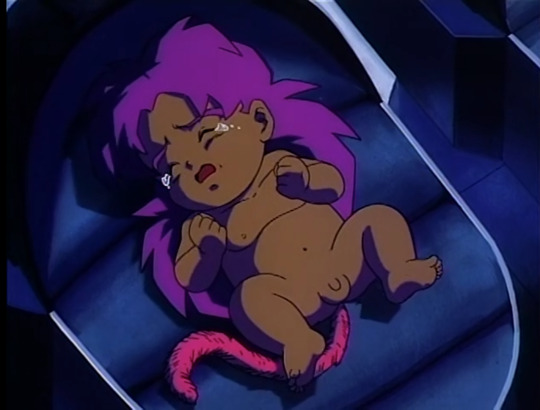
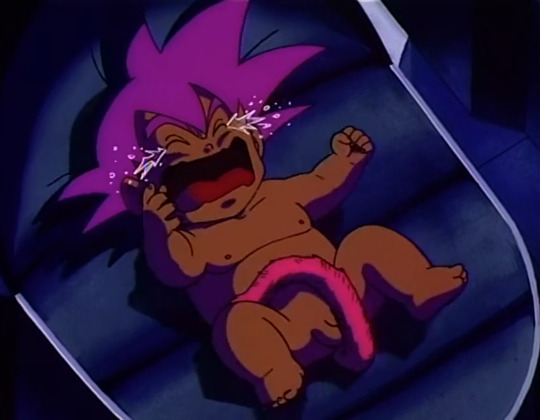
"THEY WERE BORN ON THE SAME DAY."
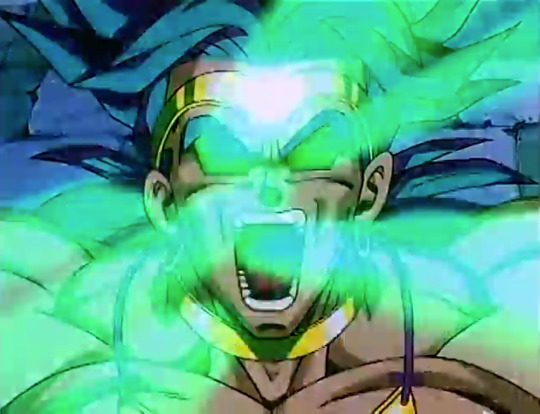
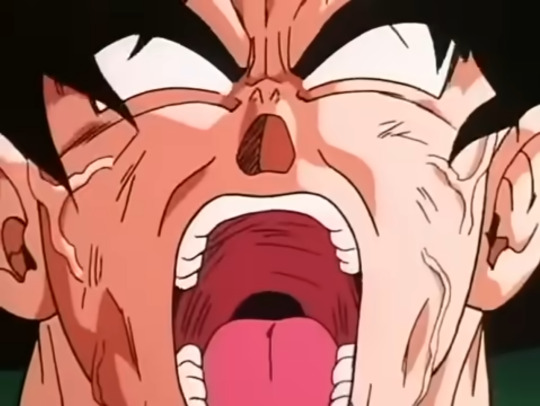
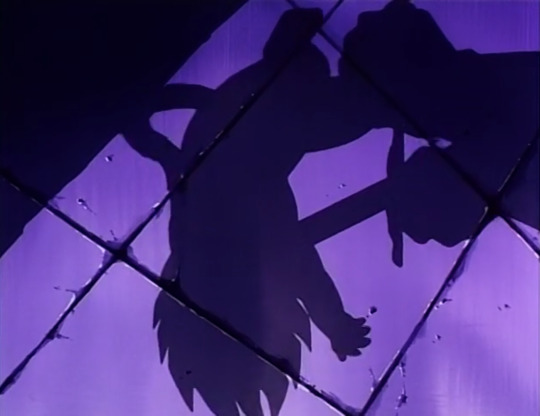
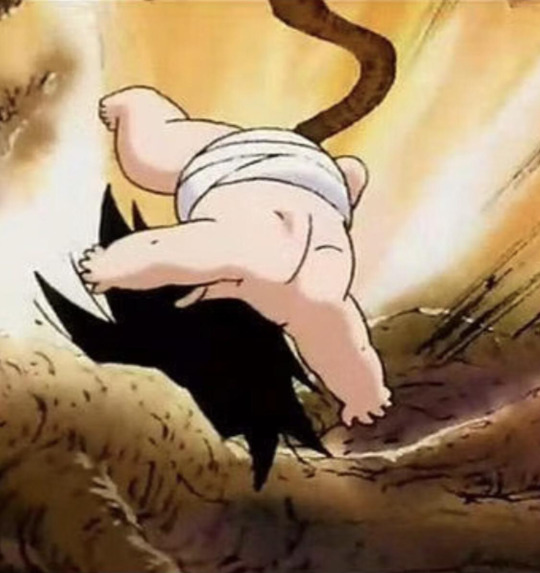

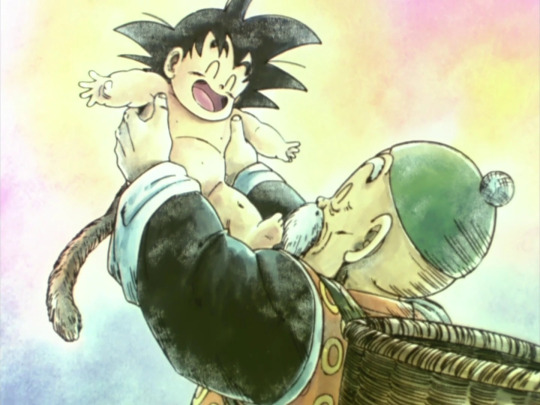



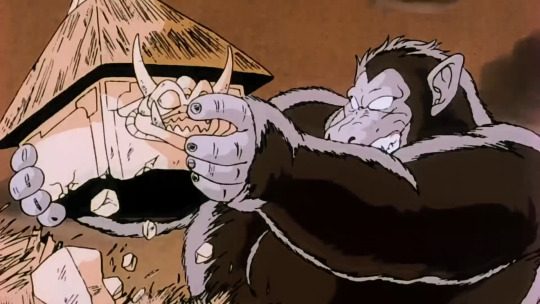
Always loved the idea of Broly being the non-canonical foil to Goku. Both ostracized from the Saiyan race and its culture, and patronized by their elites. Both the lost survivors of Planet Vegeta. Both encouraged to keep their true Saiyan nature hidden. Both suffered a traumatic injury that altered their psyche as a newborn. Both murdered their father in a fit. Both are the Legendary Super Saiyan. Both seem to (at least, at first) lack a tail. Both are based off of Sun Wukong.
But that's where similarities end.
Broly is dressed in jewelry and garb, imitating royalty that discarded him. Goku, on the other hand, dresses humbly in gi. Broly's the idealistic Saiyan, Goku is ironically the idealistic human. Broly was collared by his Saiyan father, Goku was sent away. Broly is selfish, Goku is selfless. Broly took joy in his patricide, Goku did not. Goku roars into his Saiyan form, but Broly literally explodes. Goku was sent away from Planet Vegeta, but Broly was ushered into himself with the decimation of the planet.
Z Broly is the anti-Goku. Broly is Goku if everything was wrong.
#broly was really cool#i can probably be more articulate and expansive but im tired its late sorry#messy garbled analysis#ive seen claims that broly is the 'anti-christ' and goku is 'jesus' i think that's too far-fetched but lmao#dragon ball z#character analysis#90s anime#broly#dbz broly#sparking zero#dbz goku#dbz#budokai tenkaichi#dragon ball#the legendary super saiyan
124 notes
·
View notes












